China/16 de septiembre de 2016/www.lagranepoca.com/Por: Joshua Philipp
La desvinculación de Estados Unidos de la ICANN ayuda a la estrategia del régimen chino para imponer sus reglas en Internet.
Asistentes a la Conferencia de Informática en Hangzhou, China, del 14 de octubre de 2015, observan el alcance de AliCloud, la rama de computación en la nube de Alibaba. (Qilai Shen/Bloomberg via Getty Images)
En noviembre de 2014, Li Yuxiao, becario investigador en la Academia China del Ciberespacio, declaró: “Ahora es momento de que China tome conciencia de sus responsabilidades. Si EE. UU. está dispuesto a abandonar su manejo de la esfera de Internet, se plantea la pregunta de quién tomará el mando y cómo lo manejará”, según el periódico estatal China Daily.
“Primero tenemos que establecer nuestro objetivo en el ciberespacio y luego pensar en qué estrategia tomar antes de pasar a pulir nuestras leyes”, dijo.
Los comentarios de Li fueron en respuesta a la noticia, también de 2014, de que Estados Unidos abandonaría el control de Internet que realizaba el gobierno federal al terminar su contrato entre el Departamento de Comercio y la Corporación de Internet para la Asignación de Nombres y Números (ICANN, sus siglas en inglés), lo cual está programado para el 1 de octubre.
En los dos años desde que Li dio su discurso en la Conferencia Mundial de Internet, la cual tenía el lema de “Un mundo interconectado, compartido y gobernado por todos”, el régimen chino ha ganado terreno en su objetivo de gobernar la Internet mundial. La conferencia de tres días en Wuzhen reunió a más de mil empresas de Internet de más de cien países y regiones.
Actualmente Li es secretario general de la Asociación de la Ciberseguridad de China, presidida por Fang Binxing, el creador del “Gran Cortafuegos” de China. Este “gran firewall” censura y monitorea la Internet de China. Aunque la Asociación usa la fachada de la “ciberseguridad”, su tarea específica es implementar las restricciones impuestas por el régimen chino en Internet.
China también está al timón de la Unión Internacional de Telecomunicaciones, un organismo de las Naciones Unidas que impulsa el control de la Internet mundial. Y las autoridades chinas establecieron un conjunto de leyes para regular cada faceta de Internet, y ya han comenzado a tratar de implementarlas en EE. UU. y otras empresas que operan en China.
El régimen chino también comenzó a integrar a importantes firmas estadounidenses de tecnología –incluyendo Microsoft, Intel, Cisco e IBM– en su Comité Tecnológico 260. Según el Wall Street Journal, este comité tiene la tarea de asistir a las autoridades chinas a bocetar reglas para temas como encriptación, big data y ciberseguridad, y determinar cuáles tecnologías deberían ser “seguras y controlables” bajo el régimen chino. El régimen chino creó el requisito de que todas las infraestructuras principales y los sistemas de información tienen que ser “seguros y controlables” como parte de la “Ley de Seguridad Nacional”, la cual cubre todos los ámbitos, desde cultura, política y espacio militar, hasta economía, medio ambiente y tecnología.
Poco después de aprobada, el 1 de julio de 2015, la Fundación de Tecnología de la Información e Innovación explicó el requisito como “parte de un esfuerzo estratégico” que apunta a “reemplazar finalmente a las empresas extranjeras de tecnología tanto en China como en los mercados de todo el mundo”.
Aunque el régimen chino comenzó a usar la “ciberseguridad” para enmascarar sus objetivos, funcionarios del Partido Comunista Chino (PCCh) y sus medios de comunicación estatales fueron bastante sinceros sobres sus intenciones en la Conferencia Mundial de Internet 2014.
El estatal China Daily informó en ese momento que “los expertos dijeron que China está usando la plataforma para vender su estrategia y sus reglas al mundo, una misión que la mayor ciberpotencia del mundo con la mayor cantidad de usuarios de Internet ha considerado importante y urgente”.
El primer ministro Li Keqiang dijo, en comentarios resumidos por China Daily, que “China está considerando establecer sus propias reglas en el ciberespacio” y que el PCCh quiere crear un “código de reglas general” para Internet. China Daily luego citó a Shen Yi, profesor adjunto especializado en ciberseguridad de la Universidad de Fudan, quien dijo más directamente que “China tiene ahora la capacidad de establecer reglas internacionales para el ciberespacio y de usar nuestra estrategia y nuestras reglas para influenciar al mundo”.
Jugada polémica
Muchos funcionarios, organizaciones y expertos de EE. UU. han hecho sonar la alarma sobre los planes de Estados Unidos de soltar el control de la ICANN por las preocupaciones de que una potencia autoritaria extranjera pudiera intentar hacer exactamente lo que el régimen chino ya ha puesto en marcha.
El 8 de junio, el Senador Ted Cruz (R-Texas) y el Representante Sean Duffy (R-Wis.) presentaron un proyecto de ley, el Acta de Protección de la Libertad de Internet, que busca evitar la entrega de la ICANN por parte de EE. UU. y asegurar que el país siga siendo el único dueño de los nombres de dominio .com y .mil.
Una publicación sobre el proyecto en el sitio web de Ted Cruz dice que “si la propuesta avanza, países como Rusia, China e Irán podrían censurar la libertad de expresión en Internet, incluyendo aquí en EE. UU., al bloquear el acceso a sitios que no les gustan”.
De acuerdo con Chris Mattmann, quien ayudó a crear algunas de las principales tecnologías de Internet, hay que tomar en serio a estas preocupaciones, ya que parte del rol de la ICANN es administrar y coordinar el Sistema de Nombres de Dominio (DNS, sus siglas en inglés). Si la ICANN ya no está bajo la supervisión de EE. UU., el proceso de determinar qué sitios web se muestran cuando uno ingresa una URL “ya no será manejado por el Departamento de Comercio de EE.UU”, dijo, y en cambio podría ser manipulado por potencias extranjeras y ser vulnerable a censura o ciberataques, por ejemplo.
Mattman ayudó a desarrollar cómo funcionan los sistemas de email en base a una propuesta de la Autoridad de Números Asignados en Internet, la cual es un departamento de la ICANN. También ayudó a desarrollar varios sistemas Apache que están en el núcleo de Internet, y actualmente trabaja con el Laboratorio de Propulsión a Reacción de la NASA.
“Opino que tiene que ser revisada detalladamente”, dijo en referencia a la ICANN, y señaló que “incluso cuando Internet esté distribuida y descentralizada, que lo está, comienza a quebrarse cuando no hay ningún elemento de autoridad centralizada”.
Estas impresiones las comparte Philip Zimmermann, creador del estándar de encriptación PGP y científico en jefe y cofundador de Silent Circle.
Zimmermann dijo que Estados Unidos tiene que mantener su control de Internet para que no “le cedamos el control a un organismo internacional que puede ser fácilmente influenciado por Estados miembro que son sociedades opresivas”.
“Sabes, se supone que Internet hace que los débiles tengan una voz. Si China controla sus propios dominios dentro de su país, le será fácil suprimir a la oposición”, dijo.
Leyes para Internet
Las preocupaciones de que gobiernos extranjeros busquen censurar o controlar Internet están lejos de no tener fundamentos. Después de que en 2014 Estados Unidos anunció que liberaría el control de la ICANN, el PCCh creó una catarata de iniciativas y leyes que afectan a empresas extranjeras y apuntan a controlar casi todas las facetas de Internet.
En enero de 2014, la Unión Internacional de Telecomunicaciones de Naciones Unidas eligió a Zhao Houlin de China como secretario general para liderar la organización que busca controlar las comunicaciones electrónicas.
Zhao había antes declarado que la censura es subjetiva y, según The New American en octubre de 2014, “Cuando se le preguntó por el enorme régimen de censura de la dictadura comunista china que apunta a las disconformidades, los disidentes y las ideas con las que no está de acuerdo, Zhao fue evasivo. “Otro tipo de países deben conocer algún tipo de censura”, respondió.
La Unión Internacional de Telecomunicaciones captó la atención internacional en 2012, cuando realizó una conferencia mundial a puertas cerradas para reescribir las reglas que rigen la Internet mundial en su Conferencia Mundial sobre las Telecomunicaciones Internacionales realizada en Dubai. La reunión provocó fuertes críticas por parte de grupos y sitios web enfocados en lo tecnológico. Cnet.com informó sobre un documento filtrado en el que la organización de las Naciones Unidas propuso un impuesto mundial a Internet para proveedores de contenido que incluían a Google, Facebook, Apple y Netflix.
El Centro para la Democracia y la Tecnología expuso una propuesta de la organización de las Naciones Unidas que fue aprobada, la cual dijo que “podría dar a los gobiernos y empresas la capacidad de escudriñar todo el tráfico de un usuario de Internet –incluyendo emails, transacciones bancarias y llamadas de voz– sin adecuadas protecciones a la privacidad”.
Junto con la creciente influencia del PCCh en el organismo de las Naciones Unidas para controlar Internet, el PCCh comenzó a crear sus propias leyes y organismos de control que podrían impulsar regulaciones tanto en China como en el extranjero.
En julio de 2015, el PCCh aprobó la Ley de Seguridad Nacional, antes mencionada por sus requisitos para que ciertas tecnologías sean “seguras y controlables”. El sitio web TechDirt de noticias de tecnología señaló en julio de 2015 que el PCCh no especificó qué requisitos exactos tendría para las empresas extranjeras, pero especulaba con que podrían estar relacionados con el anterior intento polémico del PCCh por requerir que las empresas extranjeras instalaran ‘puertas traseras’ en su productos tecnológicos.
En diciembre de 2015, el PCCh aprobó la Ley Antiterrorismo, la cual permite a las autoridades chinas desencriptar información para evitar el “terrorismo” y monitorear sistemas con la excusa de evitar la difusión de información que podría encajar en las definiciones de terrorismo o “extremismo” del PCCh.
Xia Yiyang, director senior de investigación y planeamiento de la Human Rights Law Foundation, dijo que las palabras “terrorismo” y “extremismo” son etiquetas políticas que el PCCh utiliza con los disidentes chinos para justificar sus violaciones de derechos humanos –en este caso, principalmente contra los uigures musulmanes en Xinjiang, también conocida como Turkestán del Este.
“Es fácil etiquetar a un grupo”, dijo. “Como los tibetanos, los etiquetan de ‘separatistas’ y luego se convierte en una etiqueta fija. Si alguien en China piensa en ataques terroristas, en ataques terroristas internos, todos piensan en los uigures. Si hablan de los separatistas, piensan en los tibetanos. Son etiquetas fijas”.
En julio de 2015, el PCCh presentó su Ley de Ciberseguridad. Reuters informó en junio que la ley requiere que los operadores de redes “acepten la supervisión del gobierno y del público” y que reitera los requisitos de que todos los datos personales de los ciudadanos chinos e “importantes datos comerciales” tienen que ser almacenados en el país –un elemento que expone aun más los datos a la vigilancia del gobierno.
Reuters señaló que la ley fue polémica en Estados Unidos y Europa porque afecta a firmas extranjeras. También destacó que aumentó el poder del PCCh para “acceder y bloquear la difusión de registros de información privada que la ley china considera ilegales” y que esto ha causado preocupación entre gobiernos, empresas multinacionales y activistas de derechos humanos, ya que el PCCh podría “interpretar la ley como le convenga”.
Hay una larga lista de leyes y regulaciones similares. En febrero de 2016, el PCCh publicó reglas para la publicación online. En marzo de 2016, presentó un boceto para las reglas de registro de nombres de dominio. Emitió listas de adquisición estatales que restringen a los proveedores extranjeros y también tiene leyes pendientes para regular la encriptación.
El 25 de marzo de 2016, el PCCh formó la Asociación de Ciberseguridad de China, la cual dice ser una organización nacional sin fines de lucro, pero según un informe del Centro de Estudios Estratégicos e Internacionales, la asociación responde directamente al Pequeño Grupo de Liderazgo para la Seguridad de Redes y la Información, presidido por el líder del PCCh, Xi Jinping, y es “responsable de dar forma e implementar la seguridad de la información y las políticas y leyes de Internet”.
El informe indica que el PCCh “se está moviendo a una velocidad vertiginosa para desarrollar las instituciones y los mecanismos legales y reguladores necesarios para fortalecer el control cibernético”. Dice que la organización se concentrará en temas que incluyen sistemas de seguridad de la información, soporte tecnológico, “supervisión de la opinión pública para ayudar en el control de la información y la propaganda” y “proteger los principales intereses chinos bajo la globalización, y promover mundialmente a las empresas chinas de IT competitivas”.
Según Xia, la declaración de “proteger a los principales intereses chinos ante la globalización” tiene connotaciones ocultas. “En el vocabulario del PCCh, es una forma de mantener el poder del PCCh a toda costa”, dice y agrega que “ellos tienen una definición muy clara de ‘intereses principales’”.
“No importa la política, se trata de mantener al PCCh en el poder. Esa es la única razón para todas las políticas [del PCCh]”, dijo y destacó que las políticas del PCCh fuera de China también sirven al rol primario de “mejorar el argumento de que el PCCh gobierna China legítimamente”.
El informe de la CSIS agrega que la organización brinda al PCCh, por primera vez, “una institución que puede participar en la diplomacia cibernética internacional en niveles superiores” y que “liderará la participación con asociaciones internacionales industriales, académicas y de investigación que constituyen el ecosistema mundial de la ciber-gobernación”.
Li Yuxiao, secretario general de la Asociación de Ciberseguridad de China, ha sido sorpresivamente franco sobre estos objetivos.
En una entrevista del 18 de diciembre de 2015 en el sitio web de la Conferencia Mundial de Internet, Li declaró su creencia de que ya que China tiene la mayor cantidad de internautas del mundo, debería tener el derecho de “hacer las reglas internacionales para la gobernación del ciberespacio” y agregó que “el establecimiento de las reglas es sólo el comienzo”.
Tomado de: http://www.lagranepoca.com/china/regimen-chino/86602-china-busca-controlar-la-internet-mundial.html

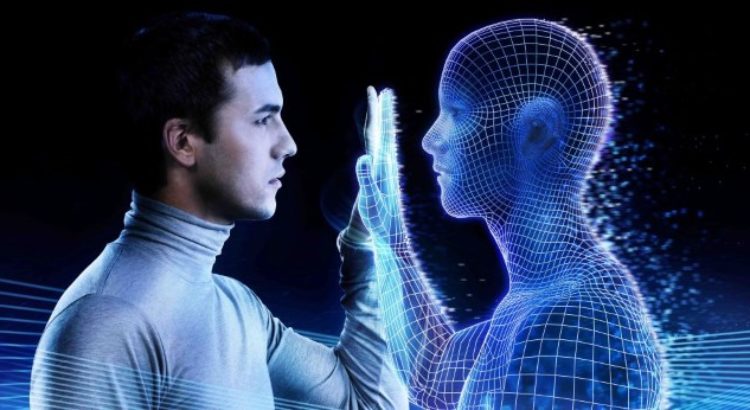

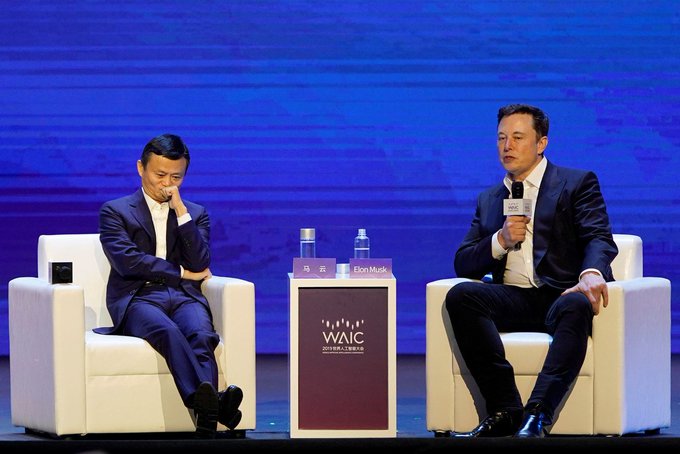

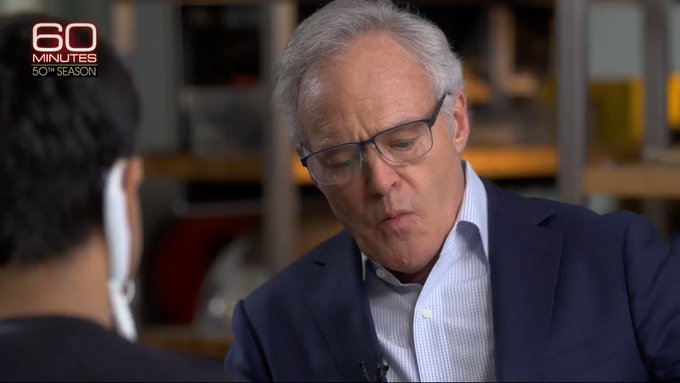
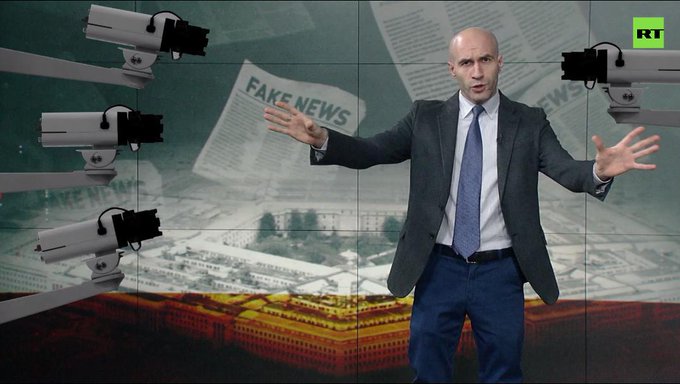
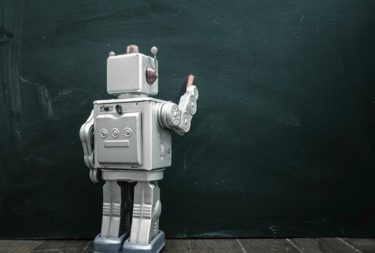







 Users Today : 174
Users Today : 174 Total Users : 35459769
Total Users : 35459769 Views Today : 331
Views Today : 331 Total views : 3418303
Total views : 3418303